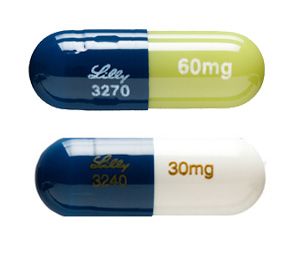Top Class Actions’s website and social media posts use affiliate links. If you make a purchase using such links, we may receive a commission, but it will not result in any additional charges to you. Please review our Affiliate Link Disclosure for more information.

Of these Cymbalta lawsuits, close to two dozen of them were recently filed in August in addition to the seven lawsuits filed last year in addition to a Cymbalta class action lawsuit.
Cymbalta is an antidepressant drug manufactured and sold by Eli Lilly and since its introduction into the North American drug market in 2004, has remained as the pharmaceutical company’s top selling drug, bringing in $5 billion in revenue, at least until last year when the patent for the drug expired.
Since 2004, Cymbalta has been regularly prescribed to treat anxiety, fibromyalgia, and chronic muscle and bone pain. While Eli Lilly did warn consumers about the possibility of withdrawal symptoms, they severely underestimated, and allegedly underreported, the real withdrawal incidence rate.
Many patients pursuing Cymbalta withdrawal symptoms class action lawsuits have argued that Eli Lilly’s claim of a 1 to 2 percent Cymbalta withdrawal rate is false, as external reports and studies conducted by Lilly itself demonstrate that the rate of Cymbalta Antidepressant Discontinuation Syndrome is actually closer to 50 percent or higher.
According to similar claims made in the various Cymbalta lawsuits, many consumers have allegedly experienced extreme withdrawal symptoms, including severe nausea, vertigo, nightmares, and electric-like sensations to the brain, after ceasing their antidepressant prescription. Some of the plaintiffs claim to have had withdrawal symptoms that lasted for months after they attempted to stop their consumption of Cymbalta.
The majority of plaintiffs filing these Cymbalta lawsuits allege that Eli Lilly was aware of the true withdrawal incidence rate, as well as the long lasting effects of the withdrawal symptoms, and yet neglected to inform its customers or the U.S. Food and Drug Administration (FDA) of the true nature of Cymbalta antidepressant discontinuation syndrome.
Of the Cymbalta lawsuits filed, there is one Cymbalta withdrawal class action lawsuit that has been in litigation since 2012. This consumer protection class action lawsuit argues that Lilly produced misleading labels, which caused Cymbalta users to experience both physical and economic harm by purchasing a product they believed to have a low withdrawal risk, when many have allegedly experience severe and long-lasting withdrawal symptoms.
The Cymbalta Class Action Lawsuit is Saavedra, et al. v. Eli Lilly and Company, Case No. 2:12-cv-09366-SVW-MAN, in the U.S. District Court for the Central District of California.
Cymbalta Antidepressant Discontinuation Syndrome
According to a 2005 study published in the Journal of Affective Disorders, 51 percent of Cymbalta users have reported experiencing antidepressant discontinuation syndrome symptoms. Additionally, 10 to 17 percent of the cases reported severe withdrawal symptoms. This study was funded and conducted by Eli Lilly to determine the extent of the antidepressant discontinuation syndrome withdrawal. It was reported that two weeks into conducting the study, none of the withdrawal symptoms had been resolved.
Some Cymbalta withdrawal side effects include:
- Severe nausea
- Vomiting
- Dizziness, light-headedness, vertigo
- Headaches
- Hot and cold flashes
- Mood swings, anxiety, irritability, hostility
- Nightmares
- Electric-shock-like sensations in the brain
- Tingling, tickling, prickling, pricking, or burning sensations of the skin
- Tremors, shaking hands
- Visual disturbances
The actual percentage of consumers who experience antidepressant discontinuation syndrome after stopping their Cymbalta prescription may actually be higher according to the findings of Harvard Medical School psychiatrist Joseph Glenmullen. In his published works on antidepressants, he has stated that as much as 78 percent of Cymbalta users will experience withdrawal symptoms.
As a result of this and other studies, many antidepressant consumers are pursuing Cymbalta lawsuits and may choose to file a Cymbalta withdrawal symptoms class action lawsuit in the future.
In general, Cymbalta withdrawal lawsuits are filed individually by each plaintiff and are not class actions. Do YOU have a legal claim? Fill out the form on this page now for a free, immediate, and confidential case evaluation. The attorneys who work with Top Class Actions will contact you if you qualify to let you know if an individual lawsuit or class action lawsuit is best for you. Hurry — statutes of limitations may apply.
ATTORNEY ADVERTISING
Top Class Actions is a Proud Member of the American Bar Association
LEGAL INFORMATION IS NOT LEGAL ADVICE
Top Class Actions Legal Statement
©2008 – 2024 Top Class Actions® LLC
Various Trademarks held by their respective owners
This website is not intended for viewing or usage by European Union citizens.
Get Help – It’s Free
Join a Free Cymbalta Withdrawal Class Action Lawsuit Investigation
If you attempted to stop taking Cymbalta and suffered withdrawal symptoms, you may have a legal claim. See if you qualify by filling out the short form below.
An attorney will contact you if you qualify to discuss the details of your potential case at no charge to you.
Oops! We could not locate your form.












